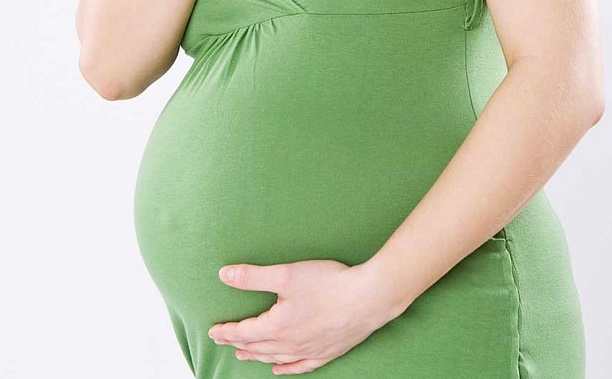How Late is TOO Late to Have a Baby?


Image source
A very interesting article appeared in The Atlantic this month. Written by American psychologist Jean M. Twenge, a professor of psychology at San Diego State University and the author of The Impatient Woman’s Guide to Getting Pregnant, the article aims to debunk the long-held myth that a woman’s fertility comes to a grinding halt once she hits about 35.
Like many female friends of mine, I also harboured the great fear that I would never be able to have children. I got married when I was 35 and my husband and I decided to start trying immediately for a baby. I will never forget the moment I discovered I was pregnant, 4 months after our wedding. I had a sneaking suspicion I was – not because of any classic tell-tale pregnancy symptoms (sore breasts, nausea etc.) but because my period always came like clockwork and I was probably a day or two late. I was at home one morning and waited for hubby to leave the house and go to work. As soon as he left, I ran to the bathroom and with huge relief, finally released the enormous pish that I had been holding on to since I woke up. I stuck the proverbial “pee stick” into the toilet bowl and well and truly got a urine sample. Somehow I found the patience to leave the room for a few minutes in order to wait for the results.
I walked back in to the bathroom about 3 minutes later and there, as clear as day, were the two tell-tale pink lines in the window of the test stick. “OMG!!!!!!!!!!!!!!!!!!!!!!!!!” I screamed. “I’m pregnant!” I literally jumped up and down with a ridiculous amount of excitement. I quickly got dressed and ran to my husband’s office which was only a 15 minute walk away in downtown Jerusalem, where we were living at the time. I rang him on the way and oh-so-casually told him I was coming into the city and “would he like to come and say hi”. I still find it remarkable that he never stopped to ask me a) what the hell I was doing in the city centre first thing in the morning and b) why did I feel the need to say hello to him when he had just said goodbye to me at home not 20 minutes earlier. Ahhh! Those early days of nuptial bliss.
Sure enough he came downstairs from his office to say hello and before he could give me a hug and a kiss, I shoved the pee stick in front of his face. “Look!” I said excitedly. “I’m pregnant!”
“What?” he replied. “Are you sure?”
“Look at the stick! See – two pink lines. Really clear dark pink lines. I am definitely pregnant.”
“But it could be a false reading. You should go to the doctor and have a blood test, just to make sure.”
I tried to explain to hubbster that while you could have a false negative, it was highly unlikely to have a false positive with a pregnancy stick test. The stick measures the amount of hCG or human chorionic gonadotropin in your urine. hCG is a hormone that is only produced in pregnancy.
I convinced him that I didn’t need to go to the doctor for a blood test, but he did make me take another home pregnancy test about a week later (and yes, there were still two pink lines!)
Eventually, it began to sink in for both of us that we were going to have a baby. I was extremely fortunate in that I had a text book pregnancy – no nausea, no complications. The only issue I had was that my little boy was WAY too happy in my womb and showed no signs of wanting to vacate, so at the end of 42 weeks, I was induced, the ultimate eviction notice for a baby.
At my 6 week postpartum check up with the obstetrician, I asked my doctor about future pregnancies and fertility. I was now 36 and definitely wanted at least one more child – at some point. The OB then proceeded to scare me witless by saying that basically, it was a fluke that I fell pregnant so quickly the first time, and not to rely on getting pregnant so easily the next time. She recommended wasting no time at all in trying, as we could be waiting well over a year to get pregnant again.
My husband and I were quite shook up by her revelation and started to talk seriously about when we should start trying for baby number 2. With my “rapidly deteriorating eggs” I felt time was no longer my friend. We decided that there was no harm in starting to have unprotected sex straight away. I was still largely breast feeding and besides, I had only just had a baby, so what possible chance was there that I could get pregnant? Oh, and did I mention, I was 36? Positively elderly.
Fertility mistake #1: Never let your doctor scare you. Have faith in your body’s ability to conceive.
Fertility mistake #2: Maybe, in hindsight, we should have waited a bit longer to start trying for another baby.
Fast forward a few weeks. My little boy is now 12 weeks old. He’s gorgeous and I am totally in love with him. I think I should have had a period by now. I had one a few weeks after I gave birth, so I knew that I had started ovulating again. An enormous sense of déjà vu overcame me as I sat down on the toilet with pee stick in hand – only this time I had a screaming infant in the next room.
This time I did not leave the room for three minutes. I sat and stared at the damn thing the entire time. About 15 seconds after I took the test, those familiar two pink lines appeared, and I imagined them shouting “surprise!” This time I did not jump and down with glee. I sat there, dumbstruck, unable to divert my eyes from the stunning reality that I was pregnant. Again.
I sat in the bathroom (still wearing maternity clothes from baby #1 mind you!) and thought about how the hell I was going to tell my husband this time. Somehow, running into the city with pee stick in hand seemed inappropriate this time around. I called him at work. “Honey. You’re not going to believe this but…”
Thankfully, I married a clucky man. I actually think he is cluckier than me – probably more than most women! Yes, he was a little shocked, but that soon gave way to excitement. How to tell my folks back in Melbourne? Now that was another conundrum all together. I was worried that my mum would think I had turned into some kind of baby-making freak. I wanted to assure her that while this pregnancy wasn’t exactly planned, it wasn’t entirely an accident either. But seriously. Who the hell would have believed that I would get pregnant the VERY FIRST TIME I HAD SEX AFTER GIVING BIRTH?!
To be honest, it took me a while to get excited about the baby. I think I was probably in denial for much of my first trimester. It didn’t take long for me to start showing the second time around (probably because my tummy never really had a chance to deflate the first time round!)
Once again, I was blessed with an easy and healthy pregnancy and my daughter arrived more or less on time, just a few days past my due date.
My children have just turned 4 and 3 and my husband and I are very much at the crossroads of decision. We’d love a third and final child. I am now 40 (he’s 41) and time is definitely running out. As a childbirth educator, I am literally surrounded by pregnancy and childbirth all the time, which doesn’t help when you are clucky as all hell.
The only reason we’ve waited to start trying again is because of financial implications. Raising two children is expensive enough – three will definitely cause us to struggle, unless our situation improves rapidly in a very short space of time.
So how late is TOO late to have a baby? Should I just be grateful for the two beautiful angels we have, or should we give it one last go?
Many of us (especially us over-35’s) have read the grim statistics; a woman’s chance of becoming pregnant is 20 percent each month at age 30, dwindling to 5 percent by age 40. The widely cited statistic that one in three women ages 35 to 39 will not be pregnant after a year of trying, for instance, is based on an article published in 2004 in the journal Human Reproduction. Rarely mentioned is the source of the data: French birth records from 1670 to 1830! The chance of remaining childless – 30 percent – was also calculated based on historical populations.
In other words, millions of women are being told when to get pregnant based on statistics from a time before electricity, antibiotics, or fertility treatment.
Encouragingly, new studies are revealing some very interesting (and exciting) results. A study, released this March in Fertility and Sterility and led by Kenneth Rothman of Boston University, followed 2,820 Danish women as they tried to get pregnant. Among women having sex during their fertile times, 78 percent of 35-to-40-year-olds got pregnant within a year, compared with 84 percent of 20-to-34-year-olds.
Professor Twenge has definitely given me one thing – hope.
I’ll be sure to keep you posted.
Tanya Strusberg is a childbirth educator and a regular contributor to Mum’s Lounge. She is the only Lamaze Certified Childbirth Educator (LCCE) in Australia and teaches prenatal education to pregnant women and their partners in Melbourne. She and her husband Doron have two beautiful children, Liev and Amalia.
In August, she will be co-hosting an exciting workshop in Melbourne with author Katrina Zaslavsky, author of the acclaimed book, “A Modern Woman’s Guide to A Natural Empowering Birth”. The workshop is entitled “Give Birth With Confidence! Positive Hospital Birth Preparation for Couples. To learn more visit http://tinyurl.com/olrbyhb










